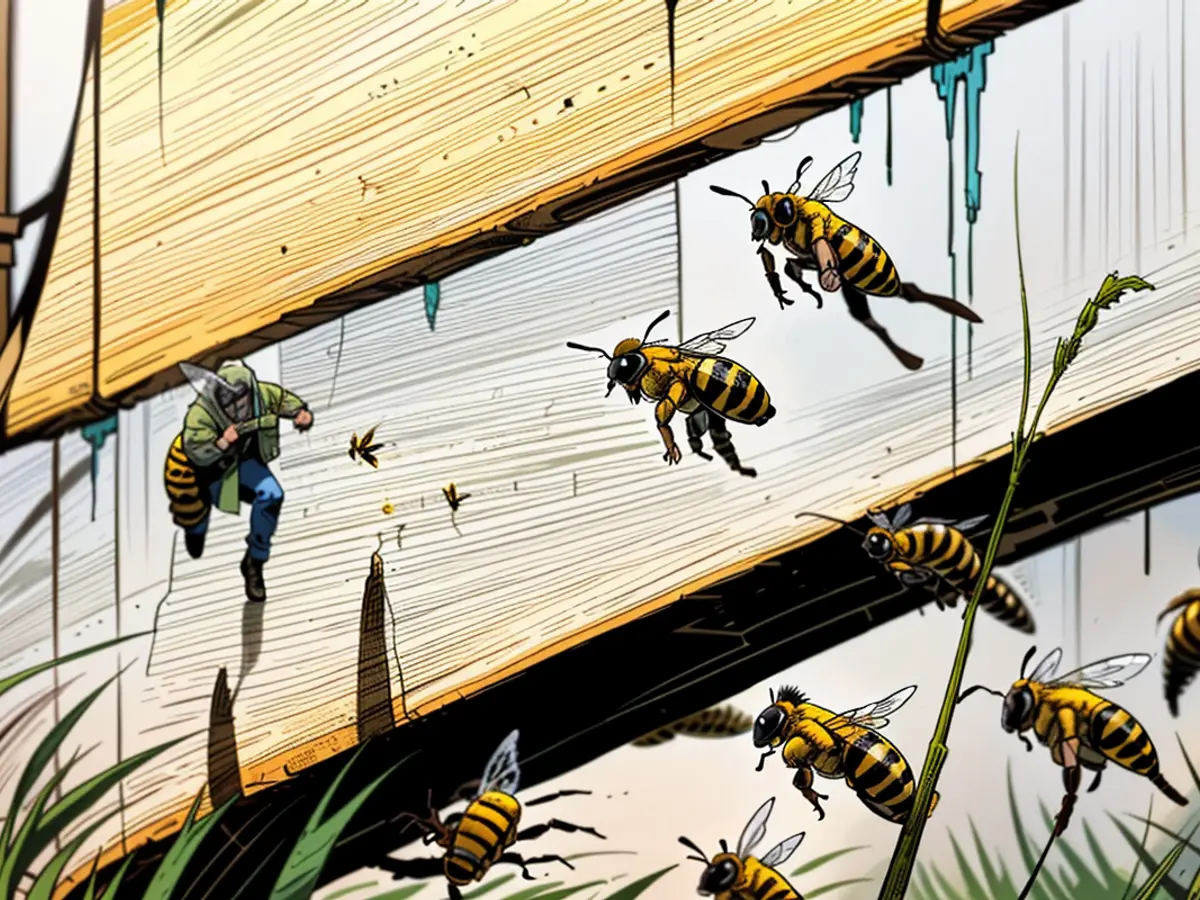- Increase in bee colonies and beekeepers observed in North Rhine-Westphalia (NRW)
Hive growth in North Rhine-Westphalia:
In North Rhine-Westphalia, the number of beekeepers and bee colonies has seen a substantial increase over the past few years. As of Marika Harz, a beekeeping expert at the Agriculture Chamber of North Rhine-Westphalia in Münster, the count of beekeepers escalated from 8,000 to 19,000 between 2014 and now. Meanwhile, the number of bee colonies in the region has swelled from 62,000 to 163,000 during this period.
Urban and female-led buzz:
Harz, the Agriculture Chamber's expert, pointed out the surge in urban beekeeping and hobbyists. Beekeeping is no longer centered but broadly distributed, which is beneficial for biodiversity. Moreover, she added that an increasing number of women are joining this male-dominated hobby, making beekeeping more urban and female-oriented.
Chilly spring impacts yield:
However, Harz informed that the cool and rainy spring has hampered a bountiful harvest of early bloom honey. The chamber, based on a survey of 1,115 beekeepers in NRW, reported that bees collected an average of only 10.5 kilograms of spring honey per colony. Nationwide, the average yield was 14.7 kilograms per colony.
The summer honey harvest is now concluded, with results due by the end of September. According to Harz, the trend here is promising.
At present, the "Apis" association of the Agriculture Chamber is promoting beekeeping in North Rhine-Westphalia by training beekeepers and providing information via the online platform "The Honey Makers."
Bees play a crucial role in the increased honey production in North Rhine-Westphalia, with the number of bee colonies rising from 62,000 to 163,000 between 2014 and now. The surge in urban beekeeping and the rising number of female beekeepers are contributing to the broader distribution of beekeeping, which is beneficial for biodiversity.








